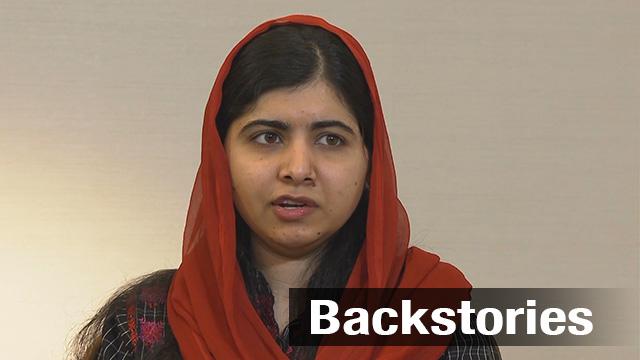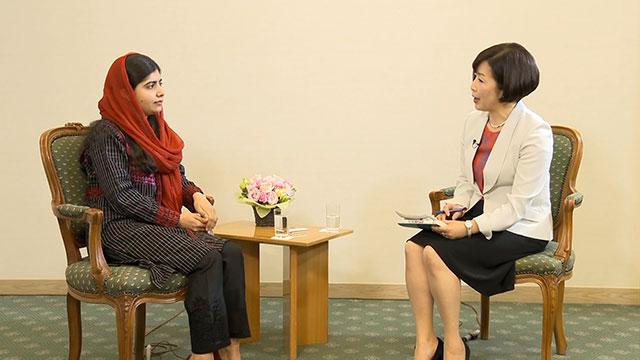
Doden: What brought you to Japan?
Malala: Japan is hosting the G20 summit this year and it is an opportunity for the top 20 richest countries to make contributions, to make pledges, on how to improve economies, how to make this world better for everyone. We cannot see this world improving if we ignore half of the population, which is women and girls.
There are 130 million girls out of school. But with the girls who are out of school and the girls who are in school but not learning, there are one billion girls who are not prepared for the future workforce. So in order to highlight this issue, I came here.
Malala is petite, but her voice carries weight. Now 21, she has taken her promotion of girls' education to the next level through her Malala Fund. One of her many projects is working to assure displaced Syrian children have access to education in refugee camps.
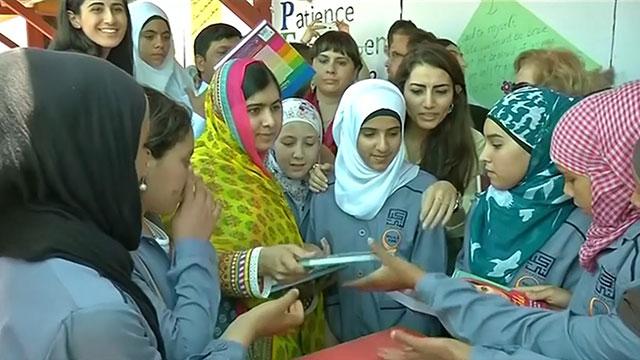
Doden: You've said the leaders are failing the Syrian children and that refugee status should not be used as an excuse to withhold education.
Malala: I think refugee children's education is often ignored because it is considered a temporary issue, as an emergency issue, and often the priority is given to shelter, water, and food. And I think what we're trying to do is remind leaders that education is equally important. It is necessary for these children, for their rehabilitation, for their learning, in order to prepare them for work in their future. They lose so many opportunities when they're not able to go to school. Especially for young girls, if you go to the refugee camps, most of them get married because there's a lack of education facilities.
Having grown up in Taliban occupied territories, Malala is acutely aware of how a lack of education can radicalize youth and ignite extremism.
She was shot by the Taliban in 2012 while on a bus home from school. The bullet to her head nearly killed her.
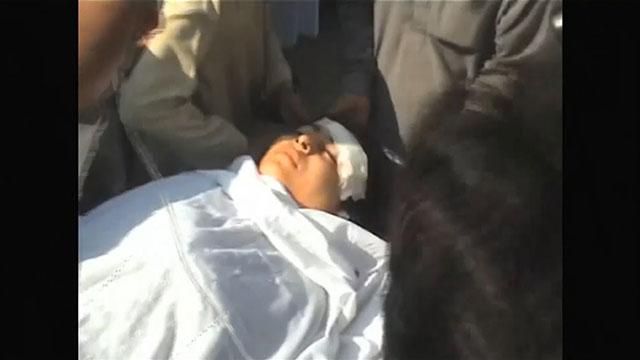
Doden: The fact that the Taliban or ISIS tried to ban the girls' right to education suggests they understand how important it is.
Malala: Yes, they do. Because they know that education empowers women. And their ideology is that the world should be dominated by men. They would be the rulers. They would be managing everything in the economy. They would be running society. They would be writing down the rules. And they know that when you give education to women, that is challenged, that changes. Because women question these things and women start realizing that this is not the world that they deserve.
I think ideologies can be defeated. Ideologies can be defeated through giving every child quality education, so no child is out of school and vulnerable to these kinds of mindsets or narratives. And I think when a child is in school, that environment allows a child to question things and not accept whatever that child is told.
Doden: Now that you are living in the UK, what do you see as at the root of such discrimination, whether in the developing or developed world?
Malala: I started hearing about these campaigns that women are not paid equally, and that women deserve equal pay. Women are not given positions at high levels, there are far less women CEOs, and when it comes to certain ethnic groups, that number goes down further.
A lot needs to be done everywhere. Women are facing challenges globally. In some places, it's far worse and a lot more needs to be done, and in some places there are still things that need to be done because we're not at that level of equality yet.
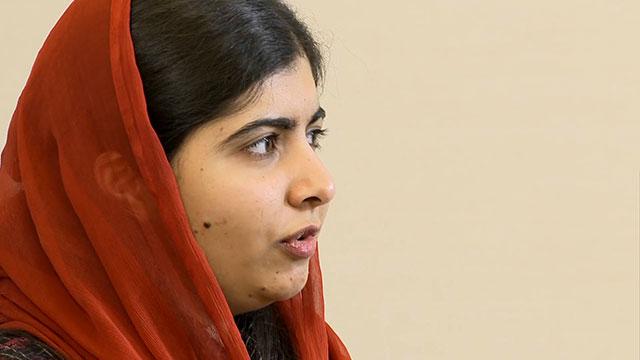
Doden: What keeps you going?
Malala: What keeps me going is the young girls who I meet, and their bravery and courage. I have met amazing young girls, and one girl who I met in Lebanon was sitting in a room and I asked her what her dream was. And this girl said she wants to become an architect and I asked her why. She said that when she was leaving her country, Syria, she saw it being destroyed. So she wants to become an architect to rebuild her country. Just to see that resilience and that hope in her eyes was something that truly inspired me, that these girls still have dreams and hopes. So we should also be positive and learn from them.
Three-and-a-half years since our last interview, Malala remains the activist, as passionate and unwavering in her support for the education of girls as ever. But I also saw a happy 21-year-old student who is genuinely enjoying life at Oxford. She attends lectures, plays sport, and stays up late chatting with friends. This experience has only strengthened her belief that women can do anything they want. She must be savoring every moment of her college life because her experience is an affirmation of her belief that every young woman, including herself, has a right to education.
